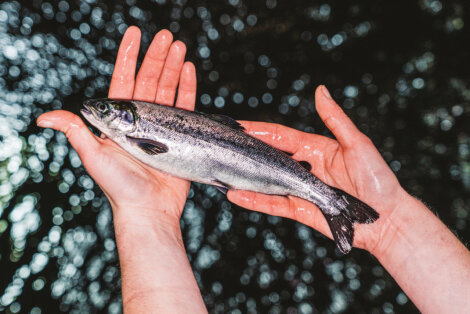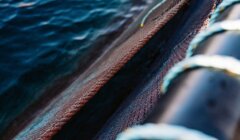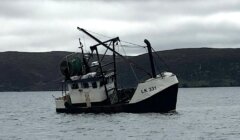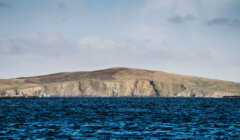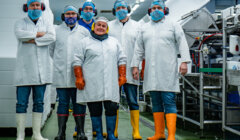Business / Salmon company chuffed after reaching zero antibiotics target
SALMON producer Scottish Sea Farms says it has achieved an important global milestone by not using any antibiotics in any of its farming operations in 2020.
The company is one of the three large players in salmon farming in Shetland.
Celebrating its success the company said it had been working on reducing its use of antibiotics for several years, with no antibiotics used on its marine farms since 2012 and only minimal use at its freshwater hatcheries in recent years.
Head of veterinary services Ronnie Soutar said zero antibiotic usage represented an important first both for Scottish Sea Farms and for the Scottish sector as a whole.
“We’re very proud to have reached this stage,” he said. “It is important on a global scale that antibiotic use is minimised and only used when absolutely essential, in recognition of concerns over antimicrobial resistance (AMR).”
Antimicrobial resistance (AMR) – where bacteria, viruses, fungi and parasites become resistant to a medicine that was previously used successfully to treat it – is considered one of the biggest issues facing global health today.
Whilst this resistance can occur naturally, it is thought that over-reliance on antibiotics in human and animal health could be adding to the problem, with medical and veterinary professionals around the world tasked with reducing usage wherever possible.
Souter added: “Scottish salmon farming generally has a very low use of antibiotics compared with other livestock sectors and Scottish Sea Farms has consistently had antibiotic usage well below the sector’s target.”
RUMA (Responsible Use of Medicines in Agriculture Alliance) set a goal in 2016 of 5mg antibiotic active substance per kg of salmon produced. This compares to a target of 25mg/kg for poultry meat (broilers) and 99mg/kg for pigs.
Become a member of Shetland News
In the four years between 2015 and 2018 inclusive, the company said it averaged 3.6 mg/kg but in 2019 this dropped to 0.25 mg/kg (five per cent of the sector target), with no antibiotic usage at all in 2020.
“Our use in the freshwater phase of production has been because infections can occur before fish are big enough to be vaccinated. However, new husbandry protocols and major investment in biosecure facilities are making such infections increasingly rare,” Soutar said.
Become a member of Shetland News
Shetland News is asking its many readers to consider paying for membership to get additional features and services: -
- Remove non-local ads;
- Bookmark posts to read later;
- Exclusive curated weekly newsletter;
- Hide membership messages;
- Comments open for discussion.
If you appreciate what we do and feel strongly about impartial local journalism, then please become a member of Shetland News by either making a single payment, or setting up a monthly, quarterly or yearly subscription.






